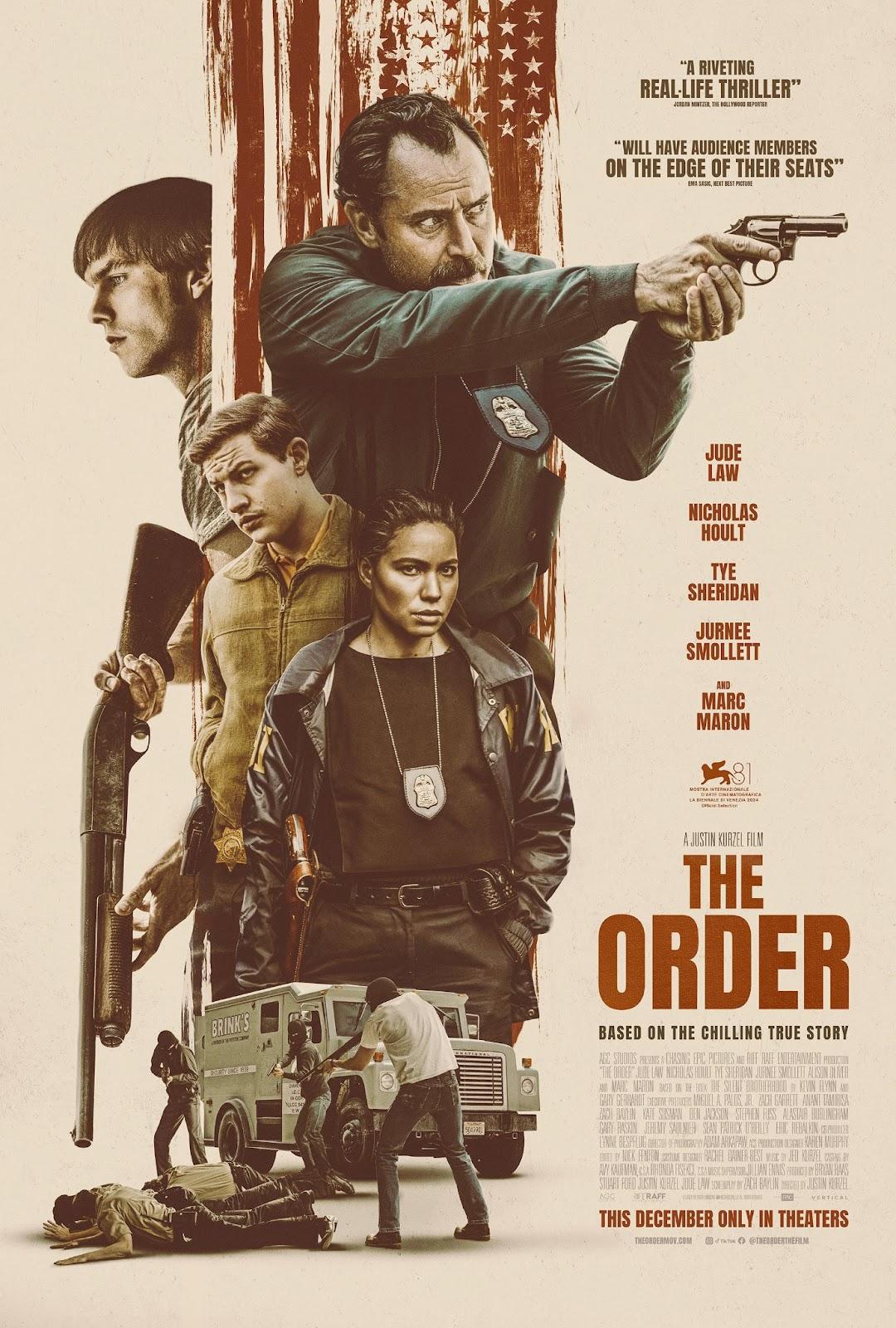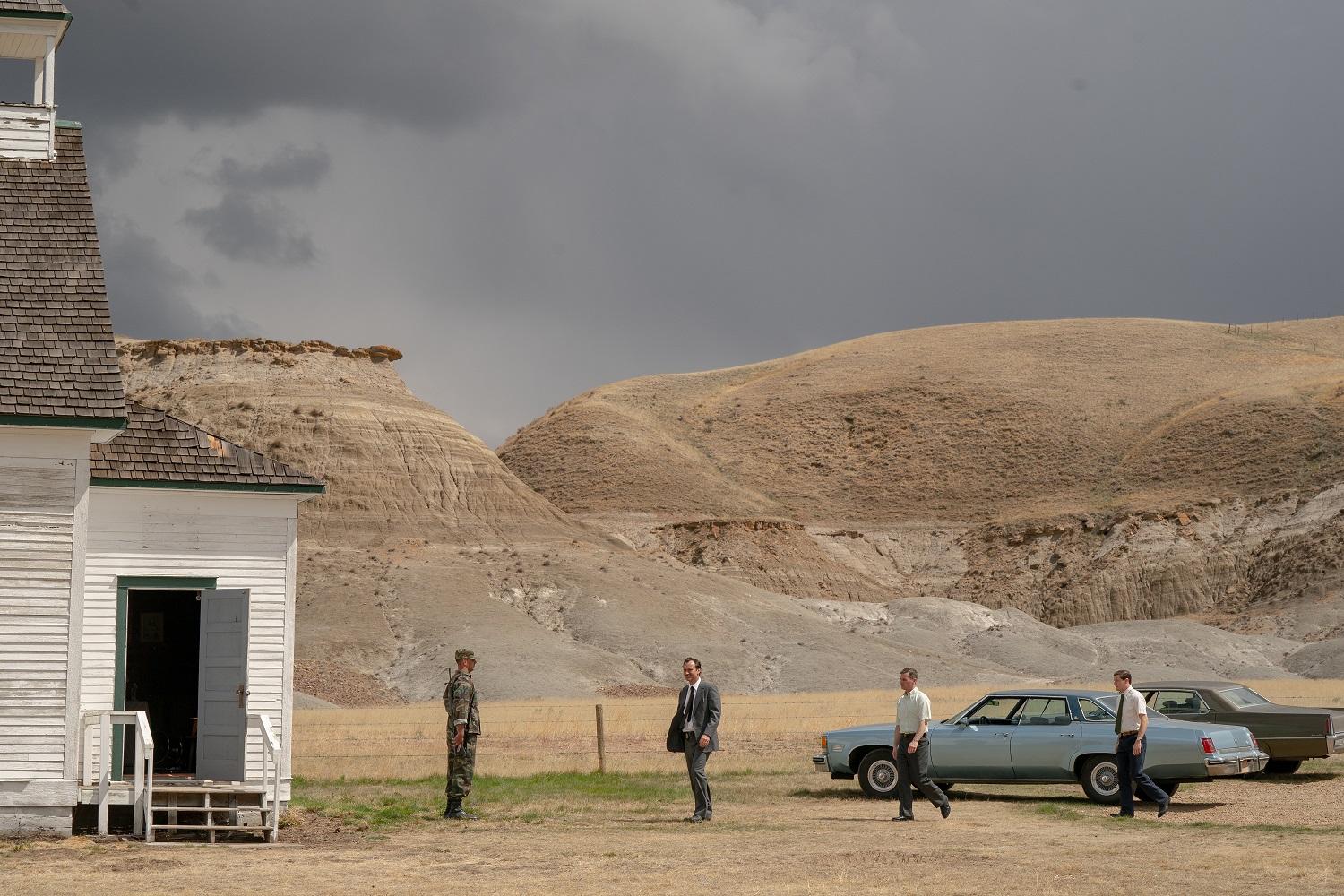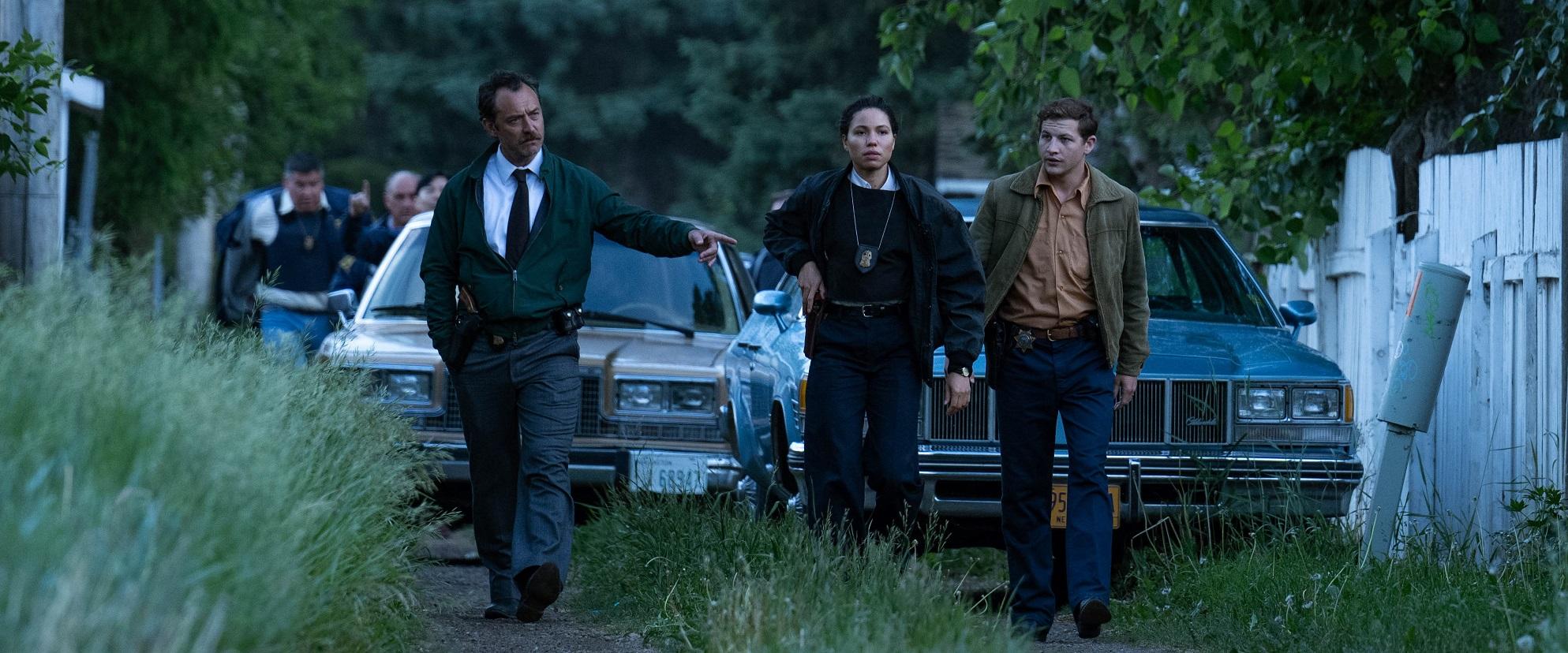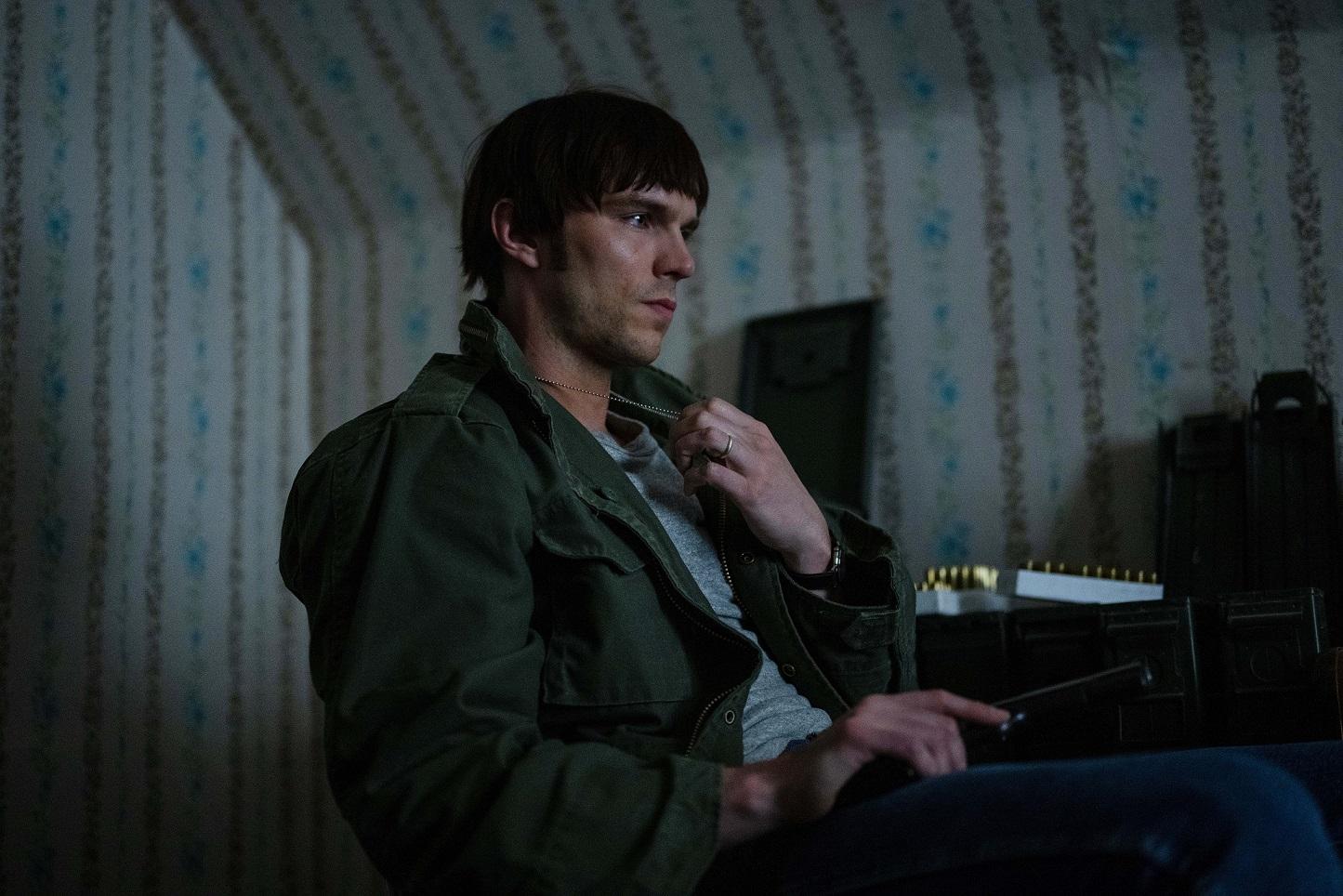Packed with powerful performances and a haunting true-crime story, The Order sneaks in as one of the year’s most engaging thrillers.
The Order
Directed By: Justin Kurzel
Written By: Zach Baylin
Starring: Jude Law, Nicholas Hoult, Jurnee Smollett, Tye Sheridan
Release Date: December 6, 2024
I went into The Order knowing pretty much nothing, nor hearing much about it aside from the odd press release for a trailer. Despite hitting the festival circuit, and featuring some big name hitters (like Jude Law, Nicholas Holt, and Jurnee Smollett), the film has flown largely under the radar; seemingly overshadowed by other festival darlings this year. As such, I was thrilled to discover one of the most compelling films I’ve watched this year, one that’s sadly as topical now as it when these events actually took place.

Set in the early 1980s, The Order recounts the true story of the FBI’s investigation into Robert “Bob” Matthews (Nicholas Hoult) and the white supremacist terror organization he set up in the Pacific Northwest. FBI agent Terry Husk (Jude Law), reeling from a broken marriage and assigned to a backwater post, inadvertently discovers that a series of seemingly random robberies and bombings are linked to a neo-Nazi cult.
Over the course of the next year, the investigation uncovers a larger plot to “reclaim” America by force using a step-by-step plan in the far-right extremist novel, The Turner Diaries. As the attacks grow increasingly bold/violent, Husk turns to old friends and new allies to do whatever he can to bring Matthews to justice before his cult expands into an even bigger problem.
The result is a fairly straightforward cat-and-mouse style crime thriller, but it’s themes and performances take it to a level beyond that simplistic description. Honestly, the best comparison I feel I can make here is to Michael Mann’s Heat. While it doesn’t have the same bombastic action set pieces, there’s something instantly compelling about the smaller scale sequences it brings to bear; filled with a tension heightened by the knowledge these events actually happened.

Don’t get me wrong, the film takes plenty of creative license (especially when it comes to individual character moments no one would be privy to), but the main “bullet point” events of the story are there and pretty accurately depicted. Like all great movies based on true events, the changes/embellishments are there to highlight the facts to bring our attention to something important.
In this case, it’s a forgotten bit of history (largely because it was thwarted) that feels all too relevant right now. It’s chilling to see how the “great replacement theory” has been a constant talking point for decades, and a rallying cry for violence.
Perhaps the scene that’s stuck with me most is among the film’s quietest; when Matthews and Richard Butler (Victor Slezak) meet up in the middle of a dirt road. It’s a “come to Jesus meeting” of sorts, as the older Butler (a prominent white supremacist “minister” who helped found the Aryan Nations) attempts to get Matthews to back down from his violent crusade. Not because people are getting hurt, or that it’s abhorrent, but because it’s bringing too much attention to their cause.

Butler’s staunch “Christian Nationalism” and overt racism was instrumental to Matthews’ current path, but now…he feels it doesn’t go far enough. Butler cautions Matthews to be patient, as their ideology is beginning to take root. That within just 10 years, they may even have people in Congress, who are “true believers.” For Matthews, however, that’s not enough and dramatic action—including insurrection—needs to be taken now.
It presents to the audience the dual ways in which white supremacy presents itself. One is considered “presentable,” skirting the law and insidiously worming its way into a culture “legally.” The other perspective is simmering violence such movements always engender. Ultimately, they are two sides of the same coin, driven by hate and harboring the same goals.
In many ways, this scene is a microcosm for the entire film. By presenting both of these aspects of neo-Nazism, it forces us to reckon with the fact there is no “reasonable” approach to racism and bigotry. Moreso, that legality of an action is never an indicator of moral rightness; because the fact is, both Matthews and Butler are monstrous people.

Much of what makes The Order so engaging, even as it sticks to the main historical points, are the portrayals of the characters. They manage to feel deep and complex, without a bunch of exposition to get us there. You get the sense these are real people (beyond the “based on a true story” aspect) with lives that happened both before and after the events of the film. As such, it’s impossible to not feel invested in everything that plays out on screen.
I honestly don’t think I’ve ever used this phrase before, but Jude Law’s turn as a grizzled, hard-nosed FBI agent who’s genuinely passionate about his job, is mesmerizing. Not only are you sold on his commitment to bring these guys down, you empathize with the struggle he faces both personally and professionally. And so much of his performance is visual. He doesn’t have a whole lot of dialog (though there’s a visceral nature to them when he does), but his mannerisms and expressions absolutely sells you on his history and mission.
Similarly, Nicholas Hoult is downright chilling. More than the violent glimmer in his eye, betraying the cold killer he can be. More than the charismatic speaker that made him a cult leader; what makes Hoult’s portrayal of Matthews so terrifying, is just how normal he is. He’s not a caricature of a white supremacist that’s easy to dismiss as being horrible. Instead, there’s a humanity to him that’s almost charming…which is why it’s so scary. Underneath that veneer of normalcy, belies the evil of true believer in these terrible ideals. Hoult balances these aspects of the character seamlessly, making for a compelling foil to Law’s FBI agent.
The final result is a film that’s hard to stop thinking about, especially given the timing of real world events. The film does a great job of reminding us about these events, and how far back this specific type of ideology goes, while making it entertaining along the way. No, it doesn’t feel “preachy” in its messaging, though I think some audiences need that approach with these kind of messages, and left me with a genuine desire to learn more about the real events.

